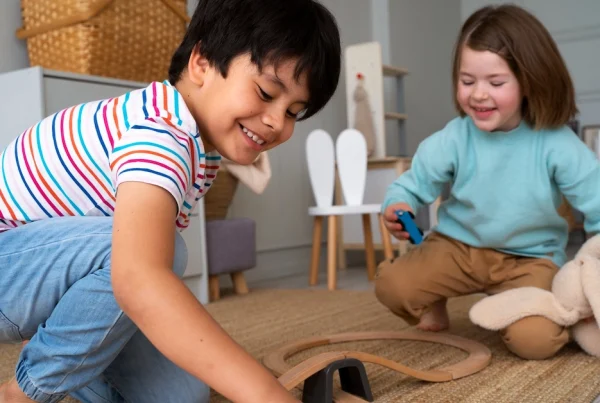When talking about the most celebrated holiday, many of us immediately think of Christmas. It’s a time filled with joy, anticipation, and countless traditions. As a Christian school, Sekolah Pelita Harapan (SPH) has the privilege of fully embracing and celebrating this festive holiday with enthusiasm and reverence.
For many, Christmas is the long-awaited season marked by family gatherings, vacations, festive decorations, and the excitement of exchanging gifts. It’s a period where people indulge in holiday treats, create memories, and often engage in charitable acts. While these traditions are cherished and certainly add to the magic of the season, it’s important to remember that they are not the core of Christmas.
If we let the focus drift solely toward these material and social aspects, we risk overshadowing the true essence of this holy day. Christmas is more than just festivities, shopping, and reunions—it is the celebration of Jesus Christ’s birth, a time to reflect on His love and the hope He brings to the world. As we approach this season, let’s take a moment to realign our hearts and minds with the real reason for the season. See below what things to keep in mind as we enter this Christmas season!
13 Important Reminders for Christmas Season to Share with Your Children

As the Christmas season approaches, it’s a wonderful opportunity for parents to share meaningful lessons with their children. Beyond the excitement of gifts and festivities, there are deeper messages that can enrich their understanding and appreciation of this holiday. Here are some important reminders to help children grasp the true essence of Christmas.
1. Christmas is God’s Greatest Gift
Christmas is more than just a time for giving and receiving presents; it’s a celebration of the greatest gift ever given. Remind your children that Christmas is primarily about God’s love for humanity, expressed through the birth of Jesus Christ. Explain that Jesus’ arrival marked the beginning of hope and salvation for the world.
This is a good time to teach children about the concept of grace and generosity, illustrating how God gave us His son freely, not because we earned it, but because of His love for us. Use this season to encourage your children to be grateful and to understand that the true spirit of Christmas lies in the joy of giving, just as God gave to us.
Also Read: Tips to Start Family Worship Habits at Home
2. Time of Reconciliation
Christmas is also a season of reconciliation—a time to mend broken relationships and embrace forgiveness. Talk to your children about the importance of forgiving others and seeking forgiveness when they’ve made mistakes. Use the Christmas story to show how Jesus came to bring peace and reconciliation to the world.
Teach them that just as Jesus reconciled humanity to God, they too can work to bring peace into their relationships with family and friends. Encourage acts of kindness, apologies when needed, and a willingness to make amends. By doing so, you help them understand that the holiday is about fostering love and unity.
3. Joyous Season for a Reason
There is this special and warm feeling associated with Christmas, and regardless of the similar secular decorations embraced, whether in a tropical country or one with four seasons, we are reminded time and time again of the true meaning of His birth. This occasion is joyous and heartwarming for a reason. We are called to give more than the presents we expect to receive or the holiday feast we order a week prior.
As God has given us love, eternal forgiveness, and life everlasting found in receiving Jesus into our lives, our only response is to give back. No, God does not need anything from us, but His only desire is our hearts. Therefore, let’s give back this Christmas, whether through our time, effort, money, or attention. “And whatever you do in word or deed, do it all in the name of the Lord Jesus, giving thanks to God the Father through Him.” (Colossians 3:17).
4. The Importance of Gratitude
In a season often focused on getting, teach your children the value of gratitude. Encourage them to be thankful for the many blessings they have, including their family, friends, and the small joys of life. Explain that being grateful is a way to honor God’s generosity.
You can incorporate gratitude into your Christmas traditions, such as creating a gratitude jar where each family member writes down things they are thankful for throughout the season. This practice helps shift the focus from materialism to a more meaningful appreciation of what they already have.
5. Embracing Simplicity
In a world that often equates Christmas with lavish gifts and elaborate celebrations, remind your children that Christmas can be celebrated in simplicity. The story of Jesus’ birth is one of humility—He was born in a manger, surrounded by simplicity.
Teach your children that it’s not about how much you have, but about the love and joy you share with others. Encourage them to find joy in simple, meaningful activities like making homemade gifts, spending quality time together, and participating in acts of kindness. This can help them develop a deeper understanding that the value of Christmas comes from the heart, not the price tag.
6. The Act of Giving
Christmas is a time to give, but it’s essential to teach children that giving is not just about presents. It’s about sharing love, time, and kindness with others. Encourage your children to think of ways they can give back, whether it’s through small acts of kindness, helping those in need, or making handmade gifts for family and friends.
Share stories of how Jesus’ life was centered around giving and serving others. By fostering a spirit of generosity, you help your children understand that giving can bring more joy than receiving, and it’s a key part of celebrating Christmas in a meaningful way.
 7. Celebrating Traditions with Meaning
7. Celebrating Traditions with Meaning
Christmas traditions are wonderful, but they become even more special when their meanings are understood. Share with your children the significance behind your family’s Christmas traditions, whether it’s decorating the tree, baking cookies, or attending a Christmas Eve service.
Explain how each tradition can reflect aspects of the Christmas story—like the star on the tree symbolizing the Star of Bethlehem or the lights representing Jesus as the Light of the World. By connecting traditions with their roots in the Christmas narrative, you can help your children appreciate the deeper meaning behind the customs they enjoy.
Also Read: Holiday Tips to Beat Holiday Boredom
8. Spreading Joy and Kindness
Christmas is an excellent opportunity to teach children about spreading joy and kindness. Encourage them to look for ways to brighten someone else’s day, whether it’s by making a card for a neighbor, helping around the house, or simply offering a kind word.
Teach them that Christmas joy isn’t just about being happy themselves but also about making others happy. Share stories of how Jesus brought joy to others through His life, and challenge your children to think of creative ways they can do the same. This practice not only reinforces the importance of kindness but also helps them understand that Christmas is about embodying the love and joy that Jesus showed to the world.
9. Recognizing the Value of Family and Togetherness
Christmas is often a time when families come together, and it’s important for children to understand the value of these moments. Explain to them that Christmas is a celebration not just of Christ’s birth but also of the love and togetherness that families share. This is a time to strengthen family bonds, to gather around the table, share meals, tell stories, and create memories that will last a lifetime.
Remind them that, just as the Holy Family in the nativity story—Mary, Joseph, and baby Jesus—came together in humble circumstances, our own family gatherings, no matter how simple, are a blessing. Encourage activities that foster connection, such as family game nights, baking together, or participating in Christmas traditions. These moments of togetherness teach children that the true spirit of Christmas is found in the love and unity of family.
10. Practicing Contentment
In a season that often emphasizes more—more gifts, more food, more decorations—teach your children the importance of contentment. Explain that while it’s okay to be excited about receiving gifts, the true joy of Christmas doesn’t come from the quantity or quality of presents, but from the love and thought behind them.
Share with them the story of Jesus’ humble birth and how, despite the lack of luxury, it was the most significant event in history. Help them practice contentment by focusing on the blessings they already have and being grateful for what they receive. This can also involve setting realistic expectations about gifts and teaching them to appreciate the small, simple joys of the season. By learning to be content, children can develop a sense of peace and satisfaction that transcends material possessions.
Also Read: Ways Christian Schools Support Parenting in Digital Age
11. Reflecting on the Year
Christmas provides an opportunity to look back on the past year and reflect on all that has happened. Teach your children to take a moment during the holiday season to think about their experiences, challenges, and achievements over the year. This reflection can be a valuable time to recognize God’s presence in their lives, seeing how He has guided, protected, and blessed them throughout the year.
Encourage them to write down or share their thoughts on what they are grateful for and what they have learned. This practice helps children develop a habit of mindfulness and gratitude, understanding that every season of life, with its ups and downs, is part of their growth and God’s plan for them.
12. Understanding the Role of Service
One of the most powerful reminders for children during Christmas is the importance of serving others. Explain that Jesus came to serve and not to be served, and that Christmas is an opportunity for us to follow His example. Encourage your children to find ways to serve others during the holiday season.
This could involve volunteering at a local charity, donating toys to those in need, or simply helping a neighbor. Service can also happen within the family—encouraging them to help with household chores, assist in preparing holiday meals, or make small gifts for family members. Teaching children about service helps them develop compassion and empathy, showing them that Christmas is about giving of ourselves to make a positive difference in the lives of others.
13. Keeping Hope Alive
Finally, Christmas is a season of hope—a reminder that even in the darkest times, light has come into the world through Jesus. Teach your children that the birth of Christ represents hope for all people. It’s a time to remind them that no matter what difficulties they may face, there is always hope because of Jesus’ love and promises.
Share stories from the Bible that illustrate God’s faithfulness and how hope has been a constant theme throughout history. Encourage them to look forward to the future with a hopeful heart, knowing that God is with them. This message of hope is particularly powerful in today’s world, where children may feel uncertainty or fear. By instilling a sense of hope, you give them a foundation to face life’s challenges with faith and courage.
As we embrace the Christmas season, it’s essential to remind our children of the true meaning behind the celebrations. Beyond the gifts, decorations, and festive activities, Christmas is a time to reflect on God’s love, the joy of giving, the importance of family, and the hope that Jesus’ birth brings into our lives. By sharing these meaningful reminders, we help our children understand that Christmas is more than a holiday—it’s a season of love, gratitude, and selfless service.
At Sekolah Pelita Harapan (SPH), we believe in nurturing not only academic excellence but also the spiritual and moral growth of every child. Our curriculum is designed to instill these values, creating a strong foundation that encourages students to live out the principles of love, hope, and service throughout the year. If you’re looking for a school that emphasizes holistic education, rooted in Christian values, SPH is the perfect place for your child to grow and thrive.
We invite you to visit SPH to learn more about how we integrate faith and learning, providing a nurturing environment where your child can develop into a well-rounded individual. Let this Christmas season be a time to invest in your child’s future by choosing a school that aligns with the values you hold dear. For more information about our programs and how we can partner with you in your child’s education, visit SPH today!
[/vc_column_text][/vc_column][/vc_row]







